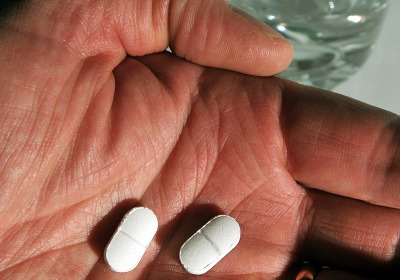New drug-drive offence a step closer
Fri, 28 Mar 2014PLANS to bring in drug-drive limits for the first time have moved a step closer.
But the Government is looking again at the proposed legal limit for amphetamine following concerns expressed during the consultation process.
In the meantime, following consultation, recommended limits for 16 different drugs have now been approved.
This means eight generally-prescription drugs and eight illicit drugs will be added into new regulations that will come into force in autumn 2014.
The new rules will mean it will be an offence to be over the generally-prescribed limits for each drug and then drive a vehicle, as it is with drink-driving.
The illicit drugs include cocaine, where drivers will not be allowed to exceed a limit of 10mg; cannabis, where the limit is 2mg, and also LSD where the limit is 1mg.
It had been proposed to set the amphetamine level at 50mg, but the Government said there had been "significant concerns" on the limit .
The amphetamine level was now being reconsidered so that patients who take medicine for attention deficit hyperactivity disorder are not affected.
The prescription drugs for which limits have been set include morphine (80mg) and methadone (500mg ).
Road safety minister Robert Goodwill said: "The results of the consultation is sending the strongest possible message that you cannot take illegal drugs and drive.
"This new offence will make our roads safer for everyone by making it easier for the police to tackle those who drive after taking illegal drugs.
"It will also clarify the limits for those who take medication."
AA president Edmund King said: "Official figures show there are around 200 drug-related deaths on our roads each year but we believe that the figure is much higher as victims aren't always routinely checked for drugs after crashes.
"We have been campaigning for years for changes to try and stop these deaths and it is heartening that progress is being made towards taking drug-driving off our streets."
He went on: "Hopefully the changes will discourage anyone from getting behind the wheel when they are under the influence of an illegal drug, and also make drivers more aware of the risks associated with driving under the influence of some prescription drugs.
"Education will play a key part in making sure drivers know the law and risks associated with drug-driving and police enforcement of the new offence will be vital to its success."
RAC technical director David Bizley said the approach of specific drug-driving limits being introduced was "clearly good news for law-abiding motorists".
He added that RAC research showed that motorists, while being tolerant of speeding, were "much less forgiving of those who drive regularly, or excessively, under the influence of drink or drugs".
He went on: "It is illegal to drive if you're unfit to do so because you are under the influence of drugs - whether legal or illegal.
"The RAC fully supports the punishment of motorists who 'drug-drive' and believes a clear message should go out to those that drive under the influence of drugs that it is completely unacceptable and should not be tolerated."
By Peter Woodman, Press Association

